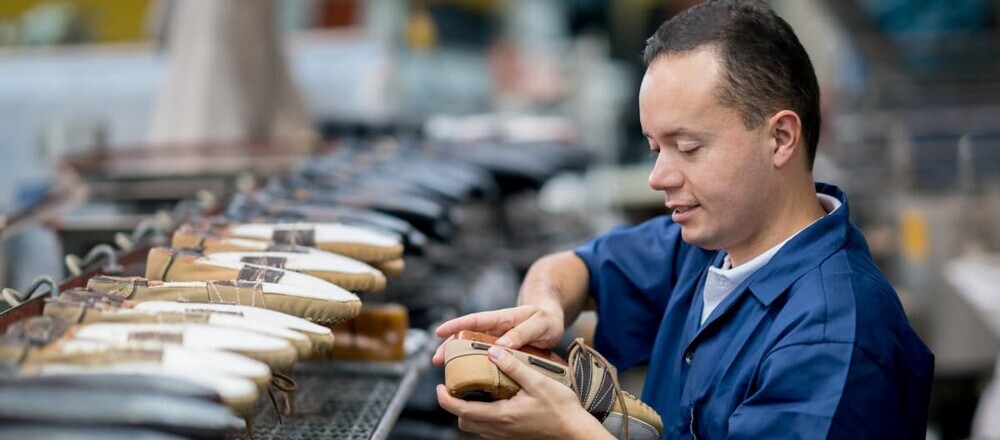Supply chain legislation: German government supports EU Commission's tighter supply chain legislation
Following lengthy deliberation, Germany’s coalition government agreed in September 2022 to adapt its Supply Chain Act to the stricter guidelines of the EU Commission. In contrast to the German Supply Chain Act, which was drawn up during the previous government and comes into force at the beginning of 2023, the EU Commission's draft also implies, among other things, the right of those affected to sue companies if their supply chains cause damage to people or the environment.
On this basis, victims of human rights violations or environmental damage could in future file claims for damages before European courts. According to the initial wording, negligence would provide sufficient grounds for this – but from some countries’ point of view, there are questions as to whether the draft can be enforced to this extent.
Germany is apparently already pushing for certain restrictions to be imposed since some local business associations are clearly critical of the draft measures. They argue that once products or production processes have been certified as harmless, companies should only be liable for violations in the event of gross negligence or intent. This mitigation is also known as the safe harbour rule.
In addition, an environmental aspect was enshrined in the EU proposal: larger companies must present strategies for bringing their business into line with the 1.5-degree climate goal. The draft EU supply chain legislation is set to be adopted prior to the European elections in spring 2024. All EU states should then convert the directive into national law within a maximum of two years.
Present your company on our platform!
The advantages:
- International audience and visibility
- Set-up in 5 minutes
- Numerous options and services through individual content
Only around 700 German companies affected at first
From January 1, 2023, the German Supply Chain Act will initially affect only around 700 major German companies with at least 3,000 employees that procure products or materials from overseas. In 2024, companies employing 1,000 people or more will also have to comply with the regulations; that's just under 3,000 companies. According to the EU’s proposal, companies with 500 or more employees will have to comply with the regulations.
If the affected companies fail to comply with their due diligence obligations, fines may be imposed. In addition, non-governmental organisations (NGOs) and trade unions should in future be empowered to represent victims in court if abuses occur in supply chains. In Germany, however, companies are not liable under civil law.
Supply Chain Act initiative: the underlying facts
The idea behind the Supply Chain Act is based on an initiative by 18 civil society organizations, including Bread for the World and Friends of the Earth Germany (BUND). They aim to promote respect for human rights and environmental protection – across the entire supply chain, including overseas.
The initiators of the Supply Chain Act argue that companies are not fulfilling their responsibility sufficiently on a voluntary basis. The Corporate Human Rights Benchmark study reached the same conclusion. According to the study, only two of the 20 largest German corporations recently documented how they deal with human rights risks.
Supply Chain Act: advocates and critics
The Supply Chain Act initiative spoke of an “overdue step in the right direction.” One drawback, however, is that the law initially only applies to a few companies. In addition to a number of other advocates, including including large German companies such as Tchibo and Ritter Sport, there has also been criticism of this legislation. Business lobbyists in particular fear a loss of competitiveness. According to the Kiel Institute for the World Economy (IfW), the Supply Chain Act in its intended form impacts the “wrong people.” Instead, misconduct by foreign companies should be punished directly.
Consequences for the economy and procurement
It is possible that overseas suppliers will have to be certified for compliance with standards – which could result in a great deal of bureaucracy and financial outlay. This is particularly true for corporations, which often cooperate with tens of thousands of suppliers from different countries to procure all their individual parts. In addition, there are significant differences in the availability and scope of these standards between industries and product areas.
On the other hand, the Supply Chain Act may lead to fairer competition: companies that are already operating responsibly and have established sustainable procurement and supply chains are likely to benefit. This is because a legal obligation would significantly reduce their current competitive disadvantage compared to less committed rivals.
Either way, compliance with social and environmental standards could lead to higher purchasing prices. However, consumers are increasingly accepting of these costs: according to a survey of 2,500 consumers at the beginning of 2020 by the auditing and consulting firm Ernst & Young, more than two thirds of Germans are now prepared to pay more money for more sustainable goods and services.
How other countries are handling supply chain legislation
France introduced supply chain legislation back in 2017. However, this only affects around 120 large companies with either at least 5,000 employees in France or more than 10,000 employees worldwide. Laws also regulate compliance with transparent supply chains in the US and the Netherlands, while the UK government has committed to strengthening Section 54 (transparency in supply chains requirements) of its Modern Slavery Act. Norway, Finland and Denmark have initiatives similar to those in Germany.


